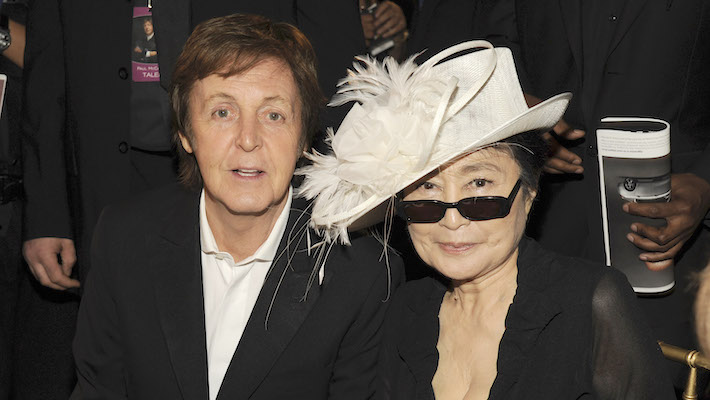
Yoko Ono will forever be a significant part of the history of The Beatles, with some having blamed her and her relationship with John Lennon for the band’s demise. Now, Paul McCartney has spoken about how Ono’s presence during recording sessions wasn’t something the rest of the band necessarily liked.
In an episode of his McCartney: A Life In Lyrics podcast (as People notes), McCartney spoke about a time when the band was “heading toward” a breakup, during the recording of 1968’s The White Album.
McCartney said, “John and Yoko had got together and that was bound to have an effect on the dynamics of the group. […] Things like Yoko being literally in the middle of the recording session [were] something you had to deal with. The idea was that if John wanted this to happen, then it should happen. There’s no reason why not.”
He later added, “Anything that disturbs us, is disturbing. We would allow this and not make a fuss, and yet at the same time, I don’t think any of us particularly liked it. It was an interference in the workplace. We had a way we worked. The four of us worked with George Martin. And that was basically it. And we’d always done it like that. So not being very confrontational, I think we just bottled it up and just got on with it. […] It was the idea of The Beatles, it was also just this straight, practical thing of, ‘This was our job.’ This is what we did in life. We were the Beatles. That meant if we didn’t tour, we recorded. And that meant if we recorded, we wrote.”
Meanwhile, in 2021, Peter Jackson, who directed the Get Back documentary series about the band, said of Ono, “I have no issues with Yoko in the sense… I can understand from George and Paul and Ringo’s point of view it’s, like, a little strange. But the thing with Yoko, though, that they have to say, is that she doesn’t impose herself. She’s writing letters, she’s reading letters, she’s doing sewing, she’s doing painting, sometimes some artwork off to the side. She never has opinions about the stuff they’re doing. She never says, ‘Oh, I think the previous take was better than that one.’ She’s a very benign presence and she doesn’t interfere in the slightest.”


 119
119